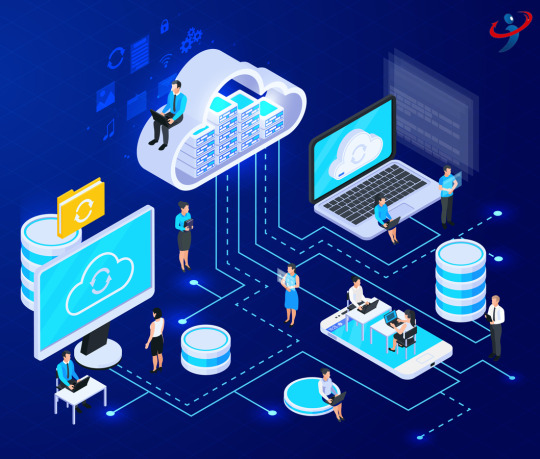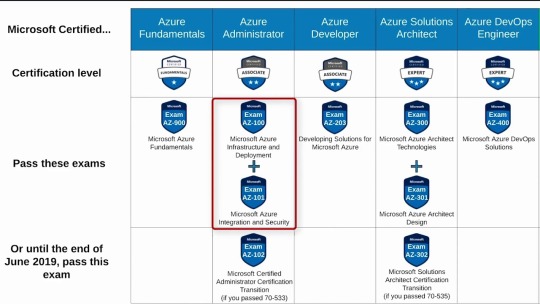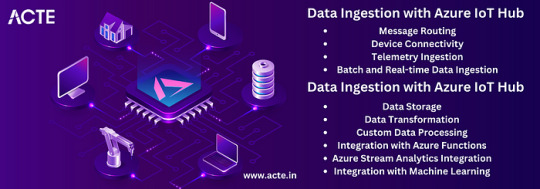#microsoft azure cloud services
Explore tagged Tumblr posts
Text
Explore how Azure DevOps Services streamline software development, enhance collaboration, and boost productivity. Learn how Impressico Business Solutions can help you implement and optimize Azure DevOps for seamless project management, faster delivery, and improved software quality. Transform your development process today!
#Microsoft Azure Cloud Services#Azure DevOps Services#Azure Cloud Computing#Cloud Computing Platform
0 notes
Text
A Comprehensive Guide to Microsoft Dynamics 365 for Small Businesses
As small businesses strive to streamline their operations, manage customer relationships, and foster growth, choosing the right tools can make a world of difference. Microsoft Dynamics 365 has become a go-to platform, offering small businesses a suite of applications tailored for sales, marketing, finance, and customer service. With Dynamics 365, small businesses can harness the power of enterprise-level software, yet maintain the flexibility and affordability that suit smaller-scale needs. Here’s an overview of how Dynamics 365 can help small businesses thrive, and why partnering with a Microsoft Gold Partner and leveraging Microsoft 365 Services can amplify these benefits.
What is Microsoft Dynamics 365?
Microsoft Dynamics 365 is a cloud-based suite that integrates Enterprise Resource Planning (ERP) and Customer Relationship Management (CRM) functionalities. This unified approach allows businesses to manage key functions such as customer interactions, finance, human resources, and supply chain all within a single platform. For small businesses, Dynamics 365 simplifies daily operations, making data and insights accessible across all departments, and enabling teams to work smarter and respond to customer needs more efficiently.
Key Benefits of Microsoft Dynamics 365 for Small Businesses
Scalability and Flexibility: As businesses grow, Dynamics 365 scales with them. Small businesses can start with core functionalities and add modules as their needs expand, making it a cost-effective solution for long-term growth.
Integration with Microsoft 365 and Azure: Dynamics 365 seamlessly integrates with Microsoft 365, allowing businesses to use familiar tools like Excel, Outlook, and Teams. Coupled with Microsoft Azure Cloud Services, small businesses gain access to a robust and secure infrastructure that enables remote access and collaboration.
Enhanced Data Analytics with Azure Log Analytics Services: Small businesses can harness advanced data insights through Azure Log Analytics. This tool helps business owners monitor application performance, troubleshoot errors, and make data-driven decisions. Azure Log Analytics provides visibility into operations and enables proactive problem-solving to reduce downtime and enhance productivity.
Deploying Microsoft Dynamics 365 with the Office Deployment Tool
For small businesses, deploying a cloud-based solution may seem daunting. However, Microsoft simplifies this with the Office Deployment Tool. This tool allows businesses to install and manage Dynamics 365 applications quickly and efficiently. The Office Deployment Tool enables IT administrators to customize installations, ensuring that each user has access to the specific tools they need without overloading devices with unnecessary software. This streamlined deployment process helps small businesses adopt new tools with minimal disruption.
Partnering with a Microsoft 365 Services Provider and Microsoft Gold Partner
Implementing and optimizing Dynamics 365 becomes smoother with support from a Microsoft 365 Services Provider and a certified Microsoft Gold Partner. Microsoft Gold Partners are experts trained in Microsoft technologies who can provide comprehensive support tailored to business needs. As a Dynamics 365 Partner, they bring invaluable insights and experience, helping small businesses leverage Dynamics 365 effectively, optimize its features, and ensure seamless integration with existing systems.
For small businesses in the Middle East and Africa (MEA), Microsoft Managed Partners offer localized support, ensuring the solutions are tailored to regional regulations and business practices. By working with trusted Microsoft Managed Partners in MEA, small businesses can navigate unique challenges, tap into Microsoft’s network, and maximize the potential of their Dynamics 365 investment.
Secure, Scalable, and Growth-Focused
With Microsoft Dynamics 365, small businesses have a powerful tool at their disposal for managing their growth. Integrated with Microsoft 365 and Azure Cloud Services, Dynamics 365 offers unmatched scalability, advanced data insights, and a secure platform for business operations. When partnered with a certified Microsoft Gold Partner, businesses benefit from expert guidance, ensuring they maximize their Microsoft investment.
For any small business ready to take the next step, Dynamics 365 offers a clear path forward. It’s more than just software—it’s a strategic tool for sustainable growth, operational efficiency, and seamless collaboration. Whether you're just beginning your digital journey or looking to enhance existing capabilities, Dynamics 365 provides a scalable, future-proof solution tailored for success.
#microsoft#office deployment tool#microsoft odt#microsoft gold partner#microsoft 365 services provider#dynamics 365 partner#microsoft azure cloud services#azure log analytics services#Microsoft managed partners for MEA
0 notes
Text
Have you noticed that cloud computing services are no longer limited to big enterprises. Even small and medium-sized businesses are embracing them with open arms. But why is this large adoption happening? Are there any significant benefits they provide to these businesses? In this blog, let’s discover the impactful role of Cloud Computing on SMBs’ development.
0 notes
Text
Microsoft Azure is the mix of cloud computing services that offers flexibility to an organization to create, manage and deploy applications on a global network with the preferred set of tools and frameworks. This helps enterprises meet their business challenges.
0 notes
Text

Finding the Best Azure Cloud Infrastructure
Selecting the ideal Azure cloud infrastructure is crucial for efficient operations. Azure Functions for a tailored solution that optimizes performance and cost-effectiveness. Choose wisely for a seamless cloud experience. Visit the website.
#Microsoft Azure Cloud Services#Azure DevOps Services#Azure cloud computing#Cloud Computing Platform#Azure cloud infrastructure
0 notes
Text
0 notes
Text
The choice between Microsoft Azure and Google Cloud will depend on a variety of factors such as your business requirements, budget, security and compliance needs, the level of support required, and specific technical features required for your applications. It is essential to evaluate both platform's features and capabilities to determine which certified cloud computing platform best meets your specific business needs. It may also be helpful to consult from Google or Microsoft consulting partners, or partner with someone such as AIMDek, a prominent name among Microsoft Gold Partners, to ensure that you make an informed decision.
0 notes
Text
Navigating the Future as Azure Certifications in 2024
In the ever-evolving landscape of cloud technology, Azure certifications continue to be instrumental in shaping the careers of IT professionals and influencing the strategies of organizations worldwide. As we step into 2024, it's essential to explore the current trends, advancements, and the transformative impact that Azure certifications are poised to have in the coming year.
The Continued Relevance of Azure Certifications
Azure certifications are not mere credentials; they are gateways to expertise and recognition in the dynamic world of cloud computing. As businesses increasingly rely on cloud solutions, the demand for skilled Azure professionals continues to grow. In 2024, Azure certifications stand as key assets, ensuring that professionals possess the knowledge and skills needed to navigate the complexities of cloud technology effectively.

Azure Certification Paths in 2024
Azure certifications are structured into comprehensive paths, catering to individuals at various stages of their cloud journey. From foundational certifications for beginners to advanced tracks tailored for specialized roles like Azure Solutions Architect or Azure DevOps Engineer, the certification paths have evolved to align with the diverse needs of IT professionals. The year 2024 sees an increased focus on role-based certifications, allowing individuals to hone specific skills relevant to their job roles.
Key Benefits of Azure Certifications in 2024
Career Advancement:
Azure certifications are a proven catalyst for career growth. In 2024, as businesses seek skilled professionals, holding an Azure certification becomes a valuable asset for those aiming to advance their careers in cloud technology.
Industry Recognition:
Globally recognized, Azure certifications validate one's expertise in Microsoft's cloud services. Employers across industries acknowledge and value these certifications as a mark of proficiency in handling Azure-based solutions.
Continuous Learning Culture:
In 2024, Azure certifications are not just about achieving a one-time qualification; they embody a commitment to continuous learning. Microsoft regularly updates its certification paths to align with emerging technologies, encouraging professionals to stay abreast of the latest industry trends.
Increased Employability:
As the job market becomes more competitive, possessing Azure certifications enhances employability. In 2024, businesses are actively seeking candidates with practical Azure skills, making certification holders highly sought after.
Emerging Trends in Azure Certifications for 2024
Micro-Certifications:
2024 witnesses a rise in micro-certifications, focusing on specific, targeted skills. These bite-sized certifications allow professionals to demonstrate expertise in niche areas, providing a more granular approach to skill validation.
Scenario-Based Assessments:
Azure certification exams in 2024 are increasingly incorporating scenario-based questions. This shift aims to evaluate not just theoretical knowledge but the ability to apply that knowledge in practical, real-world situations.
Integration of AI and ML:
With the growing importance of artificial intelligence (AI) and machine learning (ML), Azure certifications in 2024 are placing a greater emphasis on these technologies. Certification tracks dedicated to AI and ML applications within Azure are gaining prominence.
Focus on Security:
In response to the heightened concern for cybersecurity, Azure certifications in 2024 place a significant focus on security-related tracks. Azure Security Engineer certifications are expected to be in high demand as organizations prioritize securing their cloud environments.
Tips for Success in Azure Certifications 2024
Stay Updated: Given the evolving nature of technology, staying updated with the latest Azure services and features is crucial. Regularly check Microsoft's official documentation and announcements for any updates.
Hands-On Experience: Practical experience is invaluable. Utilize Azure's sandbox environments, participate in real-world projects, and engage with the Azure portal to reinforce your theoretical knowledge.
Leverage Learning Resources: Microsoft provides a wealth of learning resources, including online courses, documentation, and practice exams. Take advantage of these resources to supplement your preparation.
Join the Azure Community: Engage with the Azure community through forums, webinars, and social media. Networking with professionals in the field can provide insights, tips, and support during your certification journey.
Conclusion
As we venture into 2024, Azure certifications stand as pivotal tools for IT professionals aiming to thrive in the dynamic world of cloud technology. Whether you are starting your journey with foundational certifications or advancing your skills with specialized tracks, Azure certifications in 2024 represent more than just qualifications – they symbolize a commitment to excellence, continuous learning, and a future shaped by innovation in the cloud. Embrace the opportunities, stay ahead of the curve, and let Azure certifications be your guide to success in the ever-evolving realm of cloud proficiency.

Frequently Asked Questions (FAQs)
What are the new Azure certifications introduced in 2024?
As of 2024, Microsoft has introduced several new certifications to align with emerging technologies. Notable additions include specialized tracks focusing on AI, ML, and advanced security.
How has the exam format changed for 2024?
The exam format in 2024 has evolved to include more scenario-based questions. This change is aimed at assessing practical application skills in addition to theoretical knowledge.
Are there any prerequisites for Azure certifications in 2024?
Prerequisites vary based on the specific certification. While some foundational certifications may have no prerequisites, advanced certifications often require prior experience or the completion of specific lower-level certifications.
Can I still take exams for older Azure certifications in 2024?
Microsoft often provides a transition period for older certifications, allowing candidates to complete them even as new certifications are introduced. However, it's advisable to check Microsoft's official documentation for specific details.
How frequently are Azure certifications updated?
Azure certifications are regularly updated to stay aligned with the latest technologies and industry trends. Microsoft recommends that candidates stay informed about updates through official communication channels.
4 notes
·
View notes
Text
My Journey with Azure IoT Hub: Connecting and Managing IoT Devices at Scale
The Internet of Things (IoT), which enables seamless connectivity and automation across numerous industries, has completely changed the way we engage with technology. I was curious to learn more about the Internet of Things and its possible uses as an aspiring IoT enthusiast. My experience using Azure IoT Hub, Microsoft’s cloud-based IoT platform, and how it assisted me in connecting and managing IoT devices at scale are both discussed in this blog.
Getting Started with Azure IoT Hub

To embark on my IoT journey, I began by understanding the fundamentals of Azure IoT Hub. Azure IoT Hub is a fully managed service that acts as a central hub for bi-directional communication between IoT devices and the cloud. It provides secure, reliable, and scalable connectivity for IoT solutions. Setting up an Azure IoT Hub was my first step. While the process was relatively straightforward, I encountered a few challenges along the way.
Connecting IoT Devices
Once Azure IoT Hub was set up, I delved into the world of IoT devices. I worked with various types of IoT devices, ranging from simple sensors to complex industrial machines. Connecting these devices to Azure IoT Hub required the implementation of device-specific protocols such as MQTT or HTTP. Additionally, I focused on securing device connections and data transmission by utilizing security features provided by Azure IoT Hub.
Real-world examples of IoT devices connected to Azure IoT Hub are aplenty. For instance, in the healthcare industry, wearable devices can transmit patient vitals to Azure IoT Hub, allowing healthcare providers to monitor and respond to critical situations promptly. In smart homes, IoT devices such as thermostats and security cameras can be connected to Azure IoT Hub, enabling remote control and monitoring capabilities.
Managing IoT Devices at Scale
As my IoT project grew, I encountered the need to scale up the number of connected devices. Azure IoT Hub offered robust device management features that simplified the process of managing a large fleet of devices. I could remotely monitor the health, status, and firmware version of each device, enabling efficient troubleshooting and maintenance. Implementing best practices for device management, such as grouping devices based on location or functionality, enhanced the overall operational efficiency of my IoT solution.
Data Ingestion and Processing
Data collected from IoT devices is a valuable asset that can drive actionable insights and informed decision-making. Azure IoT Hub facilitated the ingestion and routing of data to Azure services for further processing and analysis. I had the opportunity to work with Azure Stream Analytics and Azure Functions, which enabled real-time data processing, transformation, and visualization. Leveraging these services allowed me to unlock the true potential of IoT data and derive meaningful insights.

Security and Compliance
Any IoT solution must prioritize security. Azure IoT Hub provided robust security features that ensured end-to-end protection of IoT deployments. These features included device authentication, message encryption, and integration with Azure Active Directory for access control. Additionally, Azure IoT Hub helped me meet compliance and regulatory requirements by providing built-in support for industry standards such as ISO 27001, HIPAA, and GDPR. Throughout my journey, I learned valuable lessons and implemented best practices for securing IoT solutions.
Scalability and Performance
Scaling an IoT solution to handle thousands or millions of devices is a complex task. Azure IoT Hub offered scalability features that allowed me to effortlessly handle large-scale IoT deployments. With Azure IoT Hub’s device-to-cloud messaging capabilities, I could reliably transmit messages to and from a massive number of devices. Moreover, I gained insights into optimizing IoT solutions for performance by considering factors such as message size, frequency, and device capabilities.
Real-World Use Cases
To understand the versatility of Azure IoT Hub, it is crucial to explore real-world use cases. In the manufacturing industry, Azure IoT Hub can be leveraged to connect and monitor machines on the factory floor, ensuring optimal performance and predictive maintenance. In the agriculture sector, IoT devices connected to Azure IoT Hub can collect data on soil moisture levels, temperature, and humidity, enabling farmers to make data-driven decisions for irrigation and crop management. These use cases highlight the valuable role that Azure IoT Hub plays in various domains and industries.
Future of IoT and Azure IoT Hub
The future of IoT is promising, with emerging trends shaping the landscape. As IoT continues to evolve, Azure IoT Hub will play a crucial role in enabling seamless connectivity, advanced analytics, and artificial intelligence capabilities. Integration with other Azure services and continuous updates from Microsoft ensure that Azure IoT Hub remains at the forefront of IoT innovation. The possibilities for IoT applications are limitless, and Azure IoT Hub will continue to empower developers and organizations to build robust and scalable IoT solutions.
Throughout my journey with Azure IoT Hub, I gained valuable insights and experiences. Azure IoT Hub simplified the process of connecting and managing IoT devices, providing a reliable and scalable platform. The seamless integration with other Azure services allowed me to unlock the full potential of IoT data. Moreover, the security and compliance features provided peace of mind, ensuring that my IoT solution was protected from threats. Overall, Azure IoT Hub has been instrumental in my IoT journey, contributing to enhanced efficiency and productivity.
Recommendations and Tips
For those interested in starting their own IoT journey with Azure IoT Hub, I offer the following recommendations and tips:
Begin with a clear understanding of your IoT use case and requirements.
Familiarize yourself with the documentation and resources provided by Microsoft to gain a solid foundation.
Start small and gradually scale your IoT solution as needed.
Take advantage of the device management and security features offered by Azure IoT Hub.
Leverage other Azure services such as Azure Stream Analytics and Azure Functions to derive meaningful insights from IoT data.
Stay updated on emerging trends and best practices in the IoT space.
To deepen your knowledge of IoT and Azure IoT Hub, I recommend exploring Microsoft’s official documentation, participating in the ACTE Technologies Microsoft Azure training, and attending IoT-focused conferences and events.

Azure IoT Hub has proven to be a powerful and comprehensive platform for connecting and managing IoT devices at scale. Throughout my journey, I witnessed the transformative potential of IoT solutions and the crucial role played by Azure IoT Hub in enabling seamless connectivity, advanced analytics, and robust security. As IoT continues to evolve, Azure IoT Hub will undoubtedly remain at the forefront of IoT innovation, empowering organizations to build scalable and efficient IoT solutions. I encourage readers to embark on their own IoT journeys, leveraging the capabilities of Azure IoT Hub to unlock the full potential of IoT. Join me in embracing the future of IoT and revolutionizing industries through connected devices. Please leave your comments, stories, and inquiries in the space provided below. Let’s continue the conversation and explore the endless possibilities of IoT together.
#microsoft azure#cloud services#information technology#education#tech#technology#iot#innovation#cloud computing
5 notes
·
View notes
Text
#Mobile App Development Company near me#Mobile App Development Company#software development company in india#Cloud Consulting Services in Noida#Cloud Consulting Services#app development in noida#software development company in noida#custom software development company in noida#ios app development company in noida#AWS Cloud Services#Best Service cloud consulting providers#Microsoft Azure cloud consulting services#Cloud Consulting Services India#Amazon Cloud Consulting Services#Cloud Software Consulting Services#Devops consulting and managed cloud services#AWS cloud consulting services#Cloud Managed Services#Cloud Strategy & Consulting Service#Cloud Services#Cloud Consulting Services in India#Cloud Consulting Services & Solutions#Best software development company#Best software development company in noida#Custom Flutter App Development Company#mobile app development company near me#app development companies near me#app development company near me#mobile app development company#app development companies
0 notes
Text
Are Microsoft Azure Managed Services Secure?
Businesses depend on cloud solutions for scalability, cost savings, and efficiency. Security remains a top concern, especially when outsourcing management to third-party services. Azure Managed Services provides advanced security features, ensuring that businesses can operate with confidence while protecting their data and applications.
Multi-Layered Security
Microsoft Azure follows a Zero Trust security model, ensuring strict identity verification.
Data encryption is enabled at rest and in transit to prevent unauthorized access.
Threat detection and automated responses safeguard against cyberattacks.
Compliance with Industry Standards
Businesses operating in regulated industries need cloud solutions that comply with legal and security requirements. Managed services for Azure meet global compliance standards, including GDPR, HIPAA, ISO 27001, and SOC 2, helping organizations maintain regulatory compliance effortlessly.
Proactive Threat Detection
Built-in AI-powered monitoring identifies potential security threats before they escalate.
Security updates and patches are applied automatically to prevent vulnerabilities.
Managed Azure Service includes Security Information and Event Management (SIEM) for enhanced protection.
24/7 Monitoring and Incident Response
Cyber threats can occur at any time. Managed services Azure ensures continuous monitoring, quick response to security incidents, and automated remediation to minimize risks and downtime.
Azure API Management Service Security
Controls access to APIs with authentication and authorization policies.
Defends against malicious attacks with built-in firewall protection.
Monitors API activity to detect unusual patterns and prevent data breaches.
Support from VBeyond Digital
VBeyond Digital specializes in implementing and managing Azure solutions tailored to business needs. With expertise in cloud security and compliance, VBeyond Digital ensures that businesses get the most out of managed Azure service while maintaining high security standards.
Final Thoughts
Security is a major factor when choosing cloud solutions. Azure Managed Services offers built-in security features, regulatory compliance, and continuous monitoring to protect business operations. Working with VBeyond Digital ensures seamless implementation and ongoing security management for a worry-free cloud experience.
0 notes
Text
Discover how Microsoft Azure Cloud Services and Azure DevOps Services can transform your business operations. Learn how these powerful platforms enable scalability, collaboration, and automation. Impressico Business Solutions guides you through the journey, ensuring seamless integration and optimal performance to elevate your business.
#Microsoft Azure Cloud Services#Azure DevOps Services#Azure Cloud Computing#Cloud Computing Platform#Azure Cloud Infrastructure
0 notes
Text
Its 2025, Still waiting to migrate your business in cloud?
Lead your business by leveraging Cloud. Techjour assures you to faster to market, reduce technology cost, scale your business and in-built advanced security.

#google cloud#aws cloud#aws#startup#microsoft azure#gitlab#automation#technology#business#trendingnow#trending#technology trends#market trends#2025#cloud solutions#cloud service provider#cloud services#cloudmigration#cloudconsulting#usa news#europe#technology news#technology tips
1 note
·
View note
Text
Expert Cloud Consulting Services provide Microsoft azure cloud services, Azure AD Support Services, azure AD migration services, Active Directory & Azure AD Support, Microsoft azure security consulting services at best cost in pune, Mumbai, India https://expertcloudconsulting.com/azure
#microsoft azure cloud#azure cloud computing#microsoft azure services#azure cloud services#Azure AD Support Services
0 notes
Text
Azure Cloud Computing Excellence: Strategies and Solutions
Microsoft Azure continues to innovate and expand its offerings, making it a compelling choice for enterprises seeking a competitive edge. They provide best strategies and solutions that make Azure cloud computing excellence a reality for businesses of all sizes. Watch the video
#Microsoft Azure Cloud Services#Azure DevOps Services#Azure cloud computing#Cloud Computing Platform#Azure cloud infrastructure
0 notes
Text
Microsoft's $80 Billion Leap: Brilliant AI Revolution
In an era where technology companies are racing to redefine the future through artificial intelligence, Microsoft Corporation (MSFT) has strategically positioned itself at the forefront. With recent developments shaking the tech world, Microsoft’s stock has experienced significant volatility, yet it continues to soar to new heights. This article delves into the latest updates surrounding MSFT…
#AI revolution#Azure growth#microsoft#Microsoft cloud services#Microsoft earnings report#Microsoft layoffs#Microsoft Office 365 price increase#microsoft stock analysis#Microsoft stock forecast 2025#Microsoft stock price#MSFT stock
0 notes